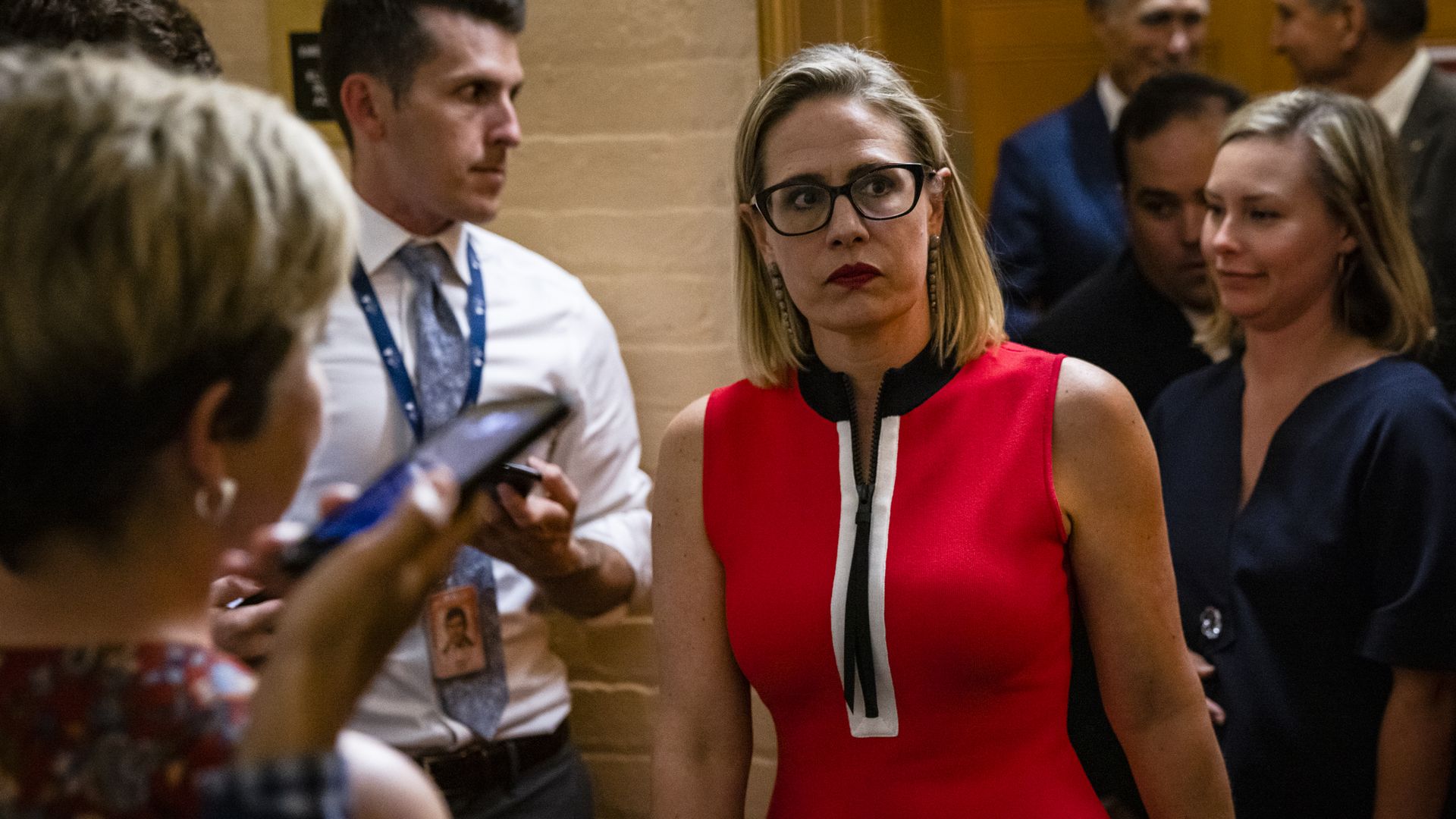Jun 22, 2021 - Politics & Policy
Sen. Kyrsten Sinema: Abolishing filibuster would weaken "democracy's guardrails"
Add Axios as your preferred source to
see more of our stories on Google.

Sen. Kyrsten Sinema at the U.S. Capitol building earlier this month. Photo: Samuel Corum/Getty Images
